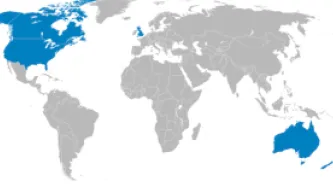Search
Content type: Examples
Ontario allocates $30 million to install new security technologies and vape detectors, expanding their surveillance apparatus whilst contributing to an overall cut in funding per student. Some of the vape detectors installed in Canadian schools include noise detectors, however there is a lack of transparency in how data is collected or used, and evidence for their efficacy in keeping students safe is lacking. Link to article: https://theconversation.com/vaping-in-schools-ontarios-30-…
Content type: Examples
The Spanish data protection regulator AEPD has fined Glovo €550,000 for excessively surveilling delivery drivers and failing to protect their data from abuse by company personnel in other countries. The data includes details of each delivery, all communications exchanged with the platform, and reputation scores. The Spanish regulator was inspired to investigate after a 2020 warning from its Italian counterpart, which was investigating Glovo's Italian food delivery subsidiary, Foodinho. …
Content type: Examples
The Court of Appeals for British Columbia rejected the claim made by whistleblower Ian Linkletter that linking to freely available materials from the remote proctoring company Proctorio was legitimate criticism. The company has a history of attacking those who criticise it and its products. Linklater, while working as Learning Technology Specialist at the University of British Columbia in 2020, issued a number of criticisms of its approach on Twitter, and linked to "unlisted" (public but not…
Content type: Examples
In a report, the Privacy Coimmissioner of Canada has said that online proctoring tools used to conduct remote exams fail to get sufficiently free, clear, and individual consent from students. Besides this overreach, the report identifies factors that may trigger false alerts and errors in the biometric tools incorporated into the software. The report ends by calling for reflection on how to identify uses of AI that should be prohibited.https://www.biometricupdate.com/202211/online-proctoring-…
Content type: Examples
Canada has a reputation, both at home and around the world, as a beacon of tolerance when it comes to acceptance of immigrants and refugees. Part of this is due to the favourable attitudes of Canadians on the issue. Over the decade, the balance of opinion in Canada has become increasingly positive about the number of immigrants arriving in Canada and the benefits they bring to the country’s economy.
Is the dramatic impact of the global COVID-19 pandemic, causing Canadians to reconsider their…
Content type: Examples
The Canary Islands sought to become the first destination for a coronavirus-free flight as part of a digital health passport pilot project backed by the World Health Organisation. Via the Hi+Card secure health mobile app that certifies they do not have COVID-19, each passenger will have a unique digital profile on their phone that will hold health information uploaded by a health entity that has been accredited by the Health Ministry. The move will make the archipelago a worldwide laboratory…
Content type: Examples
After some employers were caught asking for such information, in mid-June 2020 the Spanish data protection authority warned that it is a violation of data protection laws to screen job candidates based on whether they have had and recovered from COVID-19 and developed antibodies. This type of information is personal health data and is covered by article 9 of the GDPR.
https://www.aepd.es/es/prensa-y-comunicacion/notas-de-prensa/comunicado-AEPD-covid-19-oferta-busqueda-empleo
Writer: AEPD…
Content type: Examples
The mother of a six-month-old baby in Aurora, Ontario was fined C$880 after police accused her of standing for more than two minutes under a gazebo in a park; she claims she pulled into the gazebo to allow people to pass on the path and answered a text before moving back onto the path. The mother reported that the police officer who issued the fine did not observe social distancing and was not wearing personal protective equipment. The incident occurred a week after the city of Toronto stopped…
Content type: Examples
Under Ontario's Emergency Management and Civil Protection Act, which prohibits gatherings of more than five people, public health officials in Ottawa are pushing citizens to avoid even apparently innocuous activities such as talking across a fence to a neighbour or drinking a beer on your home's driveway with a friend, on the grounds that these can escalate into parties.
Source: https://ottawacitizen.com/news/local-news/physical-distancing-loopholes-need-to-stop-ottawa-health-official-says/…
Content type: Examples
In one of its pandemic-related emergency orders, the Canadian province of Ontario has extended to police officers, First Nations constables, special constables, and municipal by-law enforcement officers the power to require those facing charges under the emergency laws to give their name, date of birth, and address or face fines of up to C$750 for non-compliance.
Source: https://toronto.ctvnews.ca/those-violating-ontario-s-emergency-orders-must-id-themselves-or-face-steep-fine-1.4877062…
Content type: Examples
Canadian federal, provincial, and territorial governments across have put in place numerous emergency measures to curtail behaviour in order to curb the spread of COVID-19. The orders include placing people under quarantine, limiting gatherings, closing schools and businesses, barring most visits to long-term care homes, prohibiting price gouging on necessary goods, and permitting audiovisual witnessing of signatures on wills and powers of attorney.
Source: https://www.intrepidpodcast.com/blog…
Content type: Examples
In a sharp drop from the beginning of Canada's lockdown, after two months only one in six Canadians left their home on weekends compared to one in three at the beginning. The marketing company Environics Analytics compiled the report by analysing a database of anonymised location data from 2.3 million mobile phones and looking for people who went at least 100 metres beyond their home postal code for a minimum of 30 minutes on at least one weekend day, and used demographic information tied to…
Content type: Examples
Montreal police have launched an online system to enable residents to report suspicious activity such as group gatherings after police officers noticed significant crowding in certain areas of the city. Both the Montreal police and the province's Sureté du Québec can hand out an on-the-spot $1,000 ticket for both indoor and outdoor illegal gatherings. Travellers returning to Canada who refuse to comply with self-isolation requirements can be fined up to $200,000 and up to six months in prison.…
Content type: Examples
Spanish police are using drones to warn people to stay indoors apart from necessary trips after seeing a spike in COVID-19 cases. Human officers control the drones and relay via radio warnings to people to leave public parks and return home.
Source: https://www.businessinsider.com/spanish-police-using-drones-to-ask-people-stay-at-home-2020-3
Writer: Charlie Wood
Publication: BusinessInsider
Content type: Examples
A day after John Tory, the mayor of the City of Toronto, told thousands of attendees at an online event hosted by TechTO that the city was gathering cellphone location data from telecoms in order to identify areas where residents were still congregating despite the city's social distancing rules, he withdrew the claim. City staff explained that an offer had been made to share anonymous cellphone location data with the City and it had been passed along to Toronto Public Health and the Emergency…
Content type: Examples
Metrolinx, the public transport agency for the Canadian province of Ontario says that, on request, it gave Toronto Public Health contact information associated with registered Presto payment cards used on specific trips, after a 40-year-old man was diagnosed with coronavirus (COVID-19). The agency revealed the news on Twitter and said that compelling circumstances affecting the health and safety of individuals under the Ontario privacy act (FIPPA) permits the disclosure of personal…
Content type: Examples
On Wednesday, the government of Madrid will launch a free app to track COVID-19 cases similar to those developed in Asian countries such as South Korea, China, and Taiwan. The development is being carried out at no charge by developers from Google, Telefónica, Ferrovial, Goggo Network, Carto, ForceManager and Mendesaltaren, and is led by known entrepreneur Martín Varsavsky. The priority is to lessen the load on emergency numbers through the combination of users' health status and the places…
Content type: Examples
VeriPol, a system developed at the UK's Cardiff University, analyses the wording of victim statements in order to help police identify fake reports. By January 2019, VeriPol was in use by Spanish police, who said it helped them identify 64 false reports in one week and was successful in more than 80% of cases. The basic claim is that AI can find patterns that are common to false statements; among the giveaways experts say that false statements are likely to be shorter than genuine ones, focus…
Content type: Examples
In an effort to improve political advertising transparency, Canada drafted a Bill that requires companies to develop ad libraries, to which ads are added immediately in order for researchers, journalists, and other people to be able to search and understand how political actors are targeting ads. In response, Google announced that it would blanket-ban all political ads in Canada, saying the company was unable to comply with the new law. Google’s decision shows both that the current state of…
Content type: Examples
The rise of social media has also been a game changer in the tracking of benefits claimants. Back in 2009, the case of Nathalie Blanchard a woman in Quebec who had lost her disability insurance benefits for depression because she looked “too happy” on her Facebook pictures had made the news.
https://abcnews.go.com/Technology/AheadoftheCurve/woman-loses-insurance-benefits-facebook-pics/story?id=9154741
Author: Ki Mae Heussner
Publication: ABC News
Content type: News & Analysis
The first half of 2018 saw two major privacy moments: in March, the Facebook/ Cambridge Analytica scandal broke, followed in May by the EU General Data Protection Regulation ("GDPR") taking effect. The Cambridge Analytica scandal, as it has become known, grabbed the attention and outrage of the media, the public, parliamentarians and regulators around the world - demonstrating that yes, people do care about violations of their privacy and abuse of power. This scandal has been one of…
Content type: News & Analysis
This piece was first published in GDPR today in March 2019.
Elections, referendums and political campaigns around the world are becoming ever more sophisticated data operations. This raises questions about the political use and abuse of personal data. With the European Union elections fast approaching and numerous national and local elections taking place across EU Member States, it is essential that the legal frameworks intended to protect our personal data do just that.
Member State…
Content type: Long Read
This image was found here.
Spain is holding a national general election on April 28 (its third in four years). Four weeks later Spaniards will again go to the polls to vote in the European Parliament elections. At Privacy International we are working to investigate and challenge the exploitation of people’s data in the electoral cycle including in political campaigns. This includes looking at the legal frameworks governing the use of data by political parties and their…
Content type: Examples
In November 2018, the Spanish senate approved 220-21 an online data protection law intended to ensure compliance with the General Data Protection Regulation with an added amendment that allowed political parties to use personal data obtained from web pages and other publicly accessible sources for political purposes during campaign periods. Spain's Platform for the Defence of Freedom of Information criticised the law's potential to allow parties to create ideological profiles and emulate the…
Content type: Press release
Privacy International has filed a federal lawsuit seeking to compel disclosure of records relating to a 1946 surveillance agreement between the US, UK, Australia, Canada and New Zealand, known as the “Five Eyes alliance”.* We are represented by Yale Law School’s Media Freedom and Information Access Clinic (MFIA). The most recent publicly available version of the Five Eyes surveillance agreement dates from 1955. Our complaint was filed before the U.S. District Court for the District of Columbia…
Content type: Press release
Privacy International, in partnership with 30+ national human rights organisations, has today written to national intelligence oversight bodies in over 40 countries seeking information on the intelligence sharing activities of their governments.
Countries may use secret intelligence sharing arrangements to circumvent international and domestic rules on direct surveillance. These arrangements can also lead to the exchange of information that can facilitate human rights abuses,…
Content type: Long Read
Few revelations have been been as troubling for the right to privacy as uncovering the scope of the Five Eyes alliance. The intelligence club made up of Australia, Canada, New Zealand, the United Kingdom and the United States has integrated its collection efforts, staff, bases, and analysis programs. Yet the legal rulebook governing how the agencies ensure the most comprehensive joint surveillance effort in the history of mankind remains secret.
The little that is known suggests a…
Content type: News & Analysis
The central premise of international intelligence cooperation is that states are able to both access valuable partner information to protect their national security, and focus their own resources elsewhere in a mutually beneficial way. But is it really a quid-pro-quo partnership?
As the Intercept recently revealed, German policy-makers certainly have reason to doubt that this would be the case. What Germany has learned, like many others before them, is that dependence on the…
Content type: News & Analysis
The following is an excerpt from an Op-Ed written in the New Zealand Herald by Privacy International's Legal Officer Anna Crowe:
Since the release of documents by Edward Snowden nearly a year ago, New Zealand has often been seen as a passive participant in the Five Eyes intelligence-sharing alliance, not unlike a good kid hanging out with the wrong crowd.
However, Snowden documents released last month and the news that New Zealand appears to be sharing intelligence…
Content type: Long Read
The recent revelations, made possible by NSA-whistleblower Edward Snowden, of the reach and scope of global surveillance practices have prompted a fundamental re- examination of the role of intelligence services in conducting coordinated cross-border surveillance.
The Five Eyes alliance of States – comprised of the United States National Security Agency (NSA), the United Kingdom’s Government Communications Headquarters (GCHQ), Canada’s Communications Security Establishment Canada (CSEC), the…








